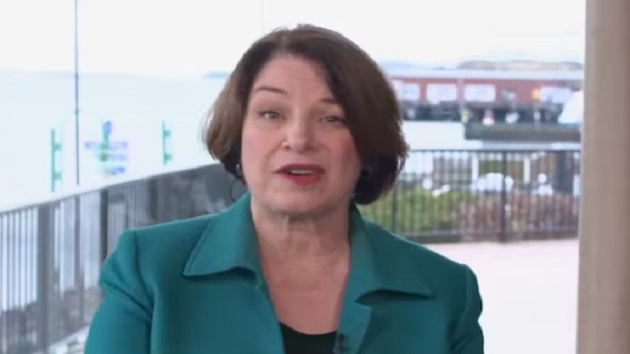First Republican presidential primary debate: Who’s in, who’s out
Written by ABC AUDIO on August 22, 2023

(NEW YORK) — Eight out of the more than a dozen 2024 GOP presidential candidates are confirmed by the Republican National Committee to be on the first primary debate stage on Wednesday night in Milwaukee. The four candidates who didn’t make the debate stage are attacking the RNC’s requirements and making plans for the next steps in their campaign.
Florida Gov. Ron DeSantis, tech entrepreneur Vivek Ramaswamy, South Carolina Sen. Tim Scott, former U.N. ambassador and South Carolina Gov. Nikki Haley, former Vice President Mike Pence, North Dakota Gov. Doug Burgum, former New Jersey Gov. Chris Christie and former Arkansas Gov. Asa Hutchinson are confirmed by the party to have cleared the polling, donor and pledging requirements. Former President Donald Trump was not among the listed participants and confirmed on Sunday that he would skip the debate.
The final count released by the RNC late Monday disqualifies at least four Republicans who claimed they had made the stage. Michigan businessman Perry Johnson, conservative talk radio host and a former California gubernatorial candidate Larry Elder, Miami Mayor Francis Suarez and former Texas Rep. Will Hurd all came short of the debate-stage qualifications: get at least 1% in three national polls or in a mix of national and early-state polls recognized by the committee and accrue 40,000 individual donors to their campaigns from at least 200 unique donors per state in 20 or more states.
In a post on X (formerly Twitter), Johnson criticized the process the RNC used to finalize the candidates. The RNC approved candidates in a case-by-case review of each candidates’ donor and polling numbers to make sure they met the qualifications.
“The debate process has been corrupted, plain and simple. Our campaign hit every metric put forward by the RNC and we have qualified for the debate. We’ll be in Milwaukee Wednesday and will have more to say tomorrow,” he wrote.
Suarez previously claimed to have met the polling benchmarks, which the RNC refuted. The mayor told ABC News’ Senior Congressional Correspondent Rachel Scott last week that he would reconsider his campaign if he failed to qualify for the debate.
“Being honest, I think, remember, it only gets harder from here. Right? So, if you don’t make the debate stage in the first debate, the thresholds go up. So, it’s harder to make hire thresholds when you’re not making lower thresholds,” Suarez said earlier this month.
Will Hurd decried the RNC’s polling requirements as “arbitrary, unclear, and lack consistency” in a statement Tuesday morning about his absence on the Milwaukee debate stage. Hurd had taken particular issue with one of the party’s benchmarks for polls to qualify — that each survey had to include 800 registered likely Republican voters.
One of the polls that would have put Hurd on stage did not ask a “screening question” that would have verified that requirement.
“The lack of transparency and confusion around the RNC’s debate requirements is antithetical to the democratic process. The polling standards are arbitrary, unclear, and lack consistency. This is an unacceptable process for a presidential election. The American people deserve better,” he wrote in a post on X. “The RNC discounted polls that included independents and Democrats willing to vote for a Republican. If the GOP is looking to grow our electorate and beat Joe Biden, then we better have a clear understanding of what qualifies as a likely Republican voter. Anyone, regardless of party, who is willing to check the box for a Republican should be considered a ‘likely Republican voter.’ Expanding our party should be applauded, not penalized.”
Elder called the RNC’s debate qualification process “rigged,” and said he plans to sue the party for the “polling criteria set by the anti-conservative, anti-Trump RNC establishment.” Elder said he plans to still be in Milwaukee on Wednesday, though he will not be on stage.
All candidates had up until 48 hours prior to the Aug. 23 debate to prove to the RNC that they met the qualifications. Upon verification of the polling and donor thresholds, the candidates were presented with the GOP loyalty pledge, which meant they must agree to support the eventual party nominee. Each hopeful had to sign the pledge to get on the stage for the first debate.
The front-runner, Trump, said he wouldn’t attend the debate. He pre-recorded a sit-down interview with Tucker Carlson last week, which will be aired as counter-programming to the GOP debate on Fox Wednesday.
Trump, in addition to forgoing the stage, has said he would not sign the loyalty pledge. RNC Chairwoman Ronna McDaniel said last week that she has a “feeling” former President Trump will sign the party’s loyalty pledge if he decided to participate in the debate, however.
“He’s signed the pledge before. He signed it to get on the South Carolina ballot,” McDaniel said on NewsNation. “I have a feeling if he wants to be on the debate stage, he’s going to sign that pledge.”
ABC News’ Libby Cathey contributed to this report.
Copyright © 2023, ABC Audio. All rights reserved.






